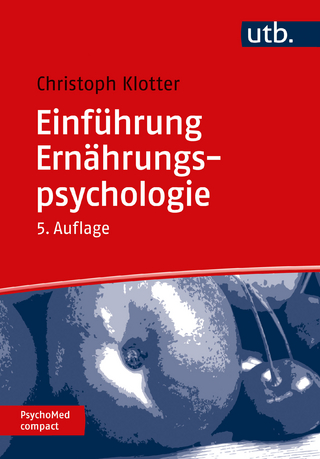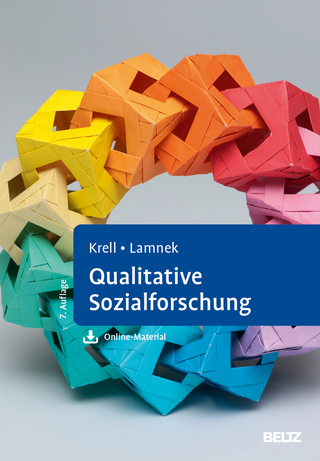
Politico-ideological Mobilisation and Violence in the Arab World
Routledge (Verlag)
978-1-032-25122-6 (ISBN)
What makes individuals identify with suffering and injustice, often of others and elsewhere? Why do individuals feel the need to stand up in the first place and how does violent action become a justifiable or necessary course of action? Why and how do they disengage from violence? This book, based on interviews conducted in Lebanon, Switzerland, and Canada, answers these questions. It presents new theoretical insights about politico-ideological mobilisation and violence. By focusing on grievances and grounding analysis in the empirical reality as it is shared and narratively constructed by those who are at the heart of the phenomenon, it moves beyond the moralistic and politicised debates that characterise the field. Interviewees include non-violent and violent engagement for causes and conflicts related to the Arab World, such as sympathisers or members of groups and causes from a variety of ideological orientations, including Shiite militias, Salafi-jihadist groups, radical left-wing groups, Palestine-specific, Kurdish groups, and others such as right-wing or unspecified affiliations. By choosing individuals with different forms of political engagement, both non-violent and violent, and different ideological orientations, it helps readers to get a better grasp of how similar grievances may lead to different outcomes. In focusing on three markedly different geopolitical contexts, the book also provides a crosscontextual understanding of mobilisation for political and violent action. The interviewees also include experts and peripheral actors such as professionals, researchers, policymakers, friends, or family members. Their perspectives complement and enrich some of the findings by providing external yet in-depth ‘expert knowledge’.
Politico-ideological Mobilisation and Violence in the Arab World will be of great interest to criminologists, political scientists, sociologists, and other scholars interested in the study of terrorism, radicalisation and extremism. It will also appeal to journalists, policymakers, practitioners working in the field.
The Open Access version of this book, available at www.taylorfrancis.com, has been made available under a Creative Commons Attribution-Non Commercial-No Derivatives 4.0 license.
Ahmed Ajil completed his PhD (Criminology) at the School of Criminal Justice at the University of Lausanne, Switzerland and Université Laval, Canada. His doctoral research was empirically based on research conducted in Switzerland, Lebanon and Canada with individuals involved in politico-ideological violence, activists, political and religious authorities, researchers and policymakers. Outside of academia, Dr Ajil is a Scientific Collaborator at the Swiss Centre of Expertise in Prison and Probation.
Introduction
PART I: Towards a grievance-based analysis
Chapter 1: Engaging with PIV and PIM in relation to the Arab World
Chapter 2: Bringing grievances back in
Chapter 3: Research protocol
Part II: Mapping grievances
Chapter 4: Three ideal-types of grievances
Chapter 5: Socio-economic grievances
Chapter 6: Ethno-racial grievances
Chapter 7: Political grievances
Chapter 8: Grievances, a relevant object of inquiry?
Part III: Performing grievances
Chapter 9: Identification : Naming the injustice
Chapter 10 : Appropriation - Owning the injustice
Chapter 11: Responsibilisation of self and others - addressing the injustice
PART IV: Mobilisation, violence and disengagement
Chapter 12: The taste of radicality: Thrill-seeking and adventurism
Chapter 13 : The logics of violence: ‘Bring back the chaos’
Chapter 14 : The importance of context: Places, people and biographic availability
Chapter 15: Disengaging: ‘You have to give him love’
PART V: Discussion and outlook
Chapter 16: Towards a theory of grievance-based mobilisation
Chapter 17 : Implications for research and policymaking
Conclusion
| Erscheinungsdatum | 06.09.2022 |
|---|---|
| Reihe/Serie | Routledge Studies in Criminal Behaviour |
| Zusatzinfo | 3 Tables, black and white; 5 Line drawings, black and white; 8 Halftones, black and white; 13 Illustrations, black and white |
| Verlagsort | London |
| Sprache | englisch |
| Maße | 156 x 234 mm |
| Gewicht | 517 g |
| Themenwelt | Geisteswissenschaften ► Psychologie ► Sozialpsychologie |
| Sozialwissenschaften ► Soziologie ► Spezielle Soziologien | |
| ISBN-10 | 1-032-25122-0 / 1032251220 |
| ISBN-13 | 978-1-032-25122-6 / 9781032251226 |
| Zustand | Neuware |
| Haben Sie eine Frage zum Produkt? |
aus dem Bereich


